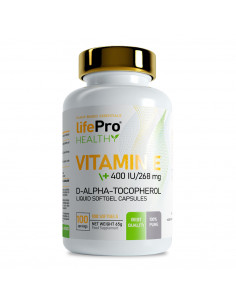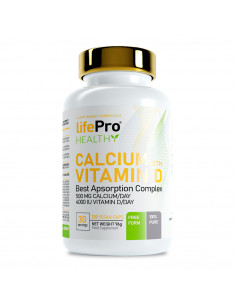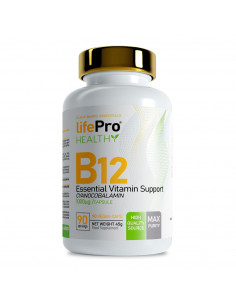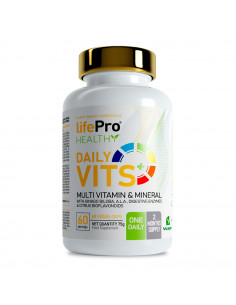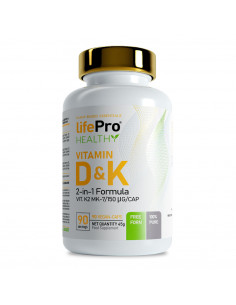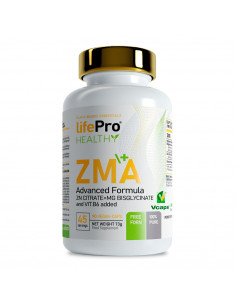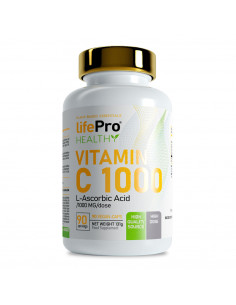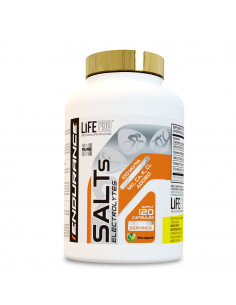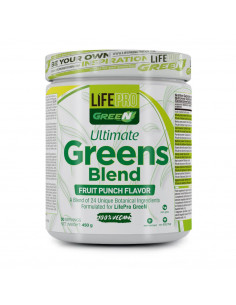Buy Vitamins And Minerals Online
Vitamins and minerals are essential for the maintenance of the body, some of these micronutrients have to be ingested because our body can not synthesize them. Get vitamin and mineral supplements at the best prices in the market.
What are vitamins and minerals?
Vitamins and minerals belong to the group of micronutrients.
Vitamins are essential and heterogeneous substances for our body, which it cannot produce by itself and must be obtained through food or supplementation. Minerals are natural organic elements that form part of the structures of numerous tissues. Both are absolutely necessary for the correct functioning, physiological processes and development of the organism.
Vitamins are classified into two groups:
Water-soluble: this includes the B vitamins and vitamin C. Their main characteristic is that they dissolve in water and the body is not able to store them, so they must be taken daily.
Liposoluble vitamins: these include vitamins A, D, E and K. Unlike the previous ones, they can be stored in adipose tissue. They dissolve in fat and are not eliminated in the urine.
Minerals are also classified into two groups:
Macro-minerals: the body needs them in quantities greater than 100mg/day.
Microminerals: the body needs them in quantities of less than 100 mg/day.
What are vitamins for?
Each vitamin is involved in a large number of functions and tasks that characterise the body, which is why it is essential to provide them on a daily basis and in adequate quantities.
- Vitamin A: helps maintain normal eyesight, improves the immune system and acts as an antioxidant.
- Vitamin D: it is obtained from the sun and is necessary for the absorption of calcium. It improves mood. Supplementation is recommended for people who do not have regular sun exposure.
- Vitamin E: great antioxidant power, improves healing processes and keeps the skin in normal condition.
- Vitamin K: essential for blood clotting, preventing haemorrhages and regulating calcium.
- Vitamin C: great antioxidant capacity that improves the immune system and fights free radicals.
- Group B vitamins: they are necessary for a multitude of functions, from food metabolism, antioxidant production, cholesterol, glucose regulation and even the functioning of the nervous system.
What are minerals for?
Among the abundant number of minerals, we highlight the functions in which the most relevant ones are needed:
- Electrolytes (chlorine, sodium and potassium): these are eliminated through sweat and it is important to replenish them, especially during physical activity. They regulate hydration, blood pH and can help prevent muscle cramps.
- Iron: its deficiency can cause tiredness and fatigue. It is involved in functions related to metabolism, red blood cells and haemoglobin.
- Calcium: protects bones and teeth.
- Zinc: necessary for hormone formation, testosterone production and muscle mass gain.
- Magnesium: lowers blood pressure, promotes the absorption of calcium in the bones and aids proper rest.
How to take vitamins and minerals?
Each person has specific needs. It is important to pay attention to your diet. Vitamin and mineral supplements can be purchased in different ways, depending on their composition:
- Single vitamin or mineral supplements: in order to make up for a specific deficiency or deficiency.
- Supplements that include combinations of two or three minerals and vitamins: in order to act synergistically.
- Multivitamin supplements: provide vitamins and minerals in amounts approximating the generally recommended daily intake.
It is important that fat-soluble vitamins (A, D, E and K) are consumed with a source of fat to ensure proper absorption.
The recommended dosage may vary depending on the supplement and the needs of the individual. It is recommended that you carefully read the labelling of the selected supplement and consult a health professional if in doubt.

